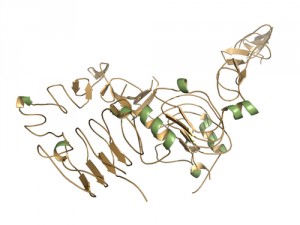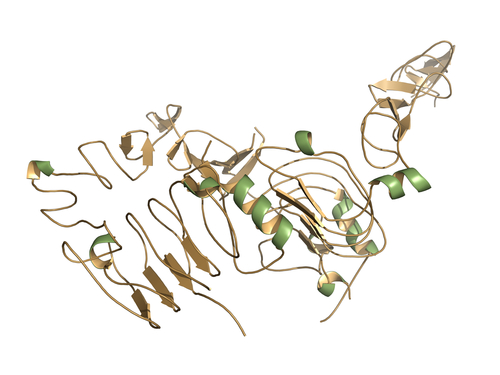 Immunotherapy as a treatment to prevent cancer recurrence is now being further confirmed by a new breast cancer vaccine candidate, GP2. New findings about the vaccine are the result of a phase II randomized trial and are being presented by The University of Texas MD Anderson Cancer Center at the 2014 American Society of Clinical Oncology’s Breast Cancer Symposium in San Francisco.
Immunotherapy as a treatment to prevent cancer recurrence is now being further confirmed by a new breast cancer vaccine candidate, GP2. New findings about the vaccine are the result of a phase II randomized trial and are being presented by The University of Texas MD Anderson Cancer Center at the 2014 American Society of Clinical Oncology’s Breast Cancer Symposium in San Francisco.
For high-risk patients of cancer recurrence, GP2 has proven to be safe and effective in reducing recurrence rates by 57%. One of the most aggressive types of breast cancer is one that tests positive for the expression of the protein called human epidermal growth factor receptor 2 (HER2). HER2 promotes tumor growth, is found in 75-80% of breast cancer cases, and is usually associated with increased disease recurrence. Now, in women with the highest over expression of HER2 (known as HER2 +3), the team from MD Anderson reports that administrating the GP2 vaccine after a complete round of trastuzumab (Herceptin) treatment eliminated cancer recurrence.
Principal investigator Elizabeth Mittendorf, M.D., Ph.D., noted that, “This is an important and different avenue in immunotherapy research, in that we are investigating ways to prevent cancer recurrence by stimulating the immune system to treat cancer. The ultimate goal is to develop a preventative tool that will minimize the risk of recurrence in women who have already had breast cancer and for whom standard therapies have failed.”
The authors’ approach consisted of pairing the GP2 vaccine, which stimulates cells from the Immune System commonly referred to as “cytotoxic” or “killer” T cells, with a strong immune stimulant known as granulocyte/macrophage colony stimulating factor (GM-CSF). Immune stimulants work by inducing the immune system to increase the production of other immune cells, a crucial step in fighting cancer. The phase II randomized trial included 190 patients with varying levels of HER2. From these, 89 women received the GP2 vaccine with a GM-CSF adjuvant, and a control group of 91 patients received GM-CSF alone. Eight patients experienced early recurrence or a second malignancy and were not able to conclude the trial. The trial’s first series lasted six months, with monthly inoculations. Four cycles of booster shots were then applied every six months thereafter. The period of monitorization was of nearly three years.
A key point of this study is the lack of cancer recurrence in the group of women who were administered trastuzumab prior to vaccine administration. Trastuzumab works by stimulating cells from the Immune System, commonly known as “helper” T cells, to release substances against cancer cells and to initiate an antibody response, therefore rendering the GP2 vaccine more effective. MD Anderson is currently testing these immunotherapies in other clinical trials.
[adrotate group=”3″]
Personalized Immunotherapy
MD Anderson research on similar breast cancer vaccines further supports the role of immune therapies. Two previous candidates significantly improved recurrence: AE37 decreased recurrence in triple-negative breast cancer patients and E75, known as NeuVax showed a 50% recurrence decrease in high-risk patients. The latter is currently being tested in a phase III clinical trial.
“We believe many more patients will benefit in some way from immunotherapy. The challenge will be identifying the right immunotherapeutic approach for each individual patient. When doctors are able to do that, cancer therapy, and immunotherapy specifically, will follow a more personalized approach “ said Mittendorf.

